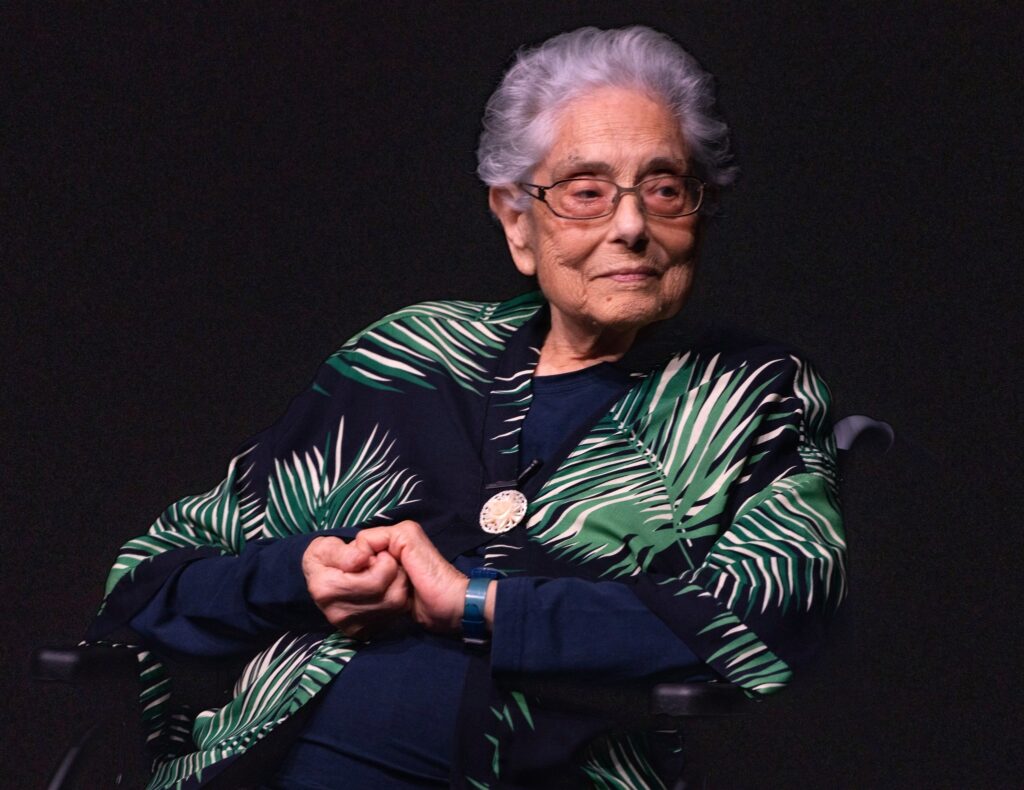“Clandestina”, a documentary by Maria Mire that recalls the work of resisting the dictatorship of the artist Margarida Tengarrinha, won the “A Voz das Mulheres” and best Portuguese film awards at the Porto Femme festival – International Film Festival.
The short film “Pelo Sim Pelo Não”, by Laura Andrade, which portrays the female experience based on the conversations of a group of friends, received the Festival Prize, which began its seventh edition on the 16th, mobilizing around three thousand people, in five spaces in Porto, and ended on Sunday night.
“Clandestina”, by Maria Mire, has as its starting point the work “Memórias de Uma Falsificadora – A Luta na Clandestina pela Liberdade em Portugal”, by professor and illustrator Margarida Tengarrinha (1928-2023) who during the dictatorship falsified documents belonging to opponents persecuted.
«The interest in making this film is linked both to the urgency of bringing out of the shadow the action of women who fought in a revolutionary way in this dark period of contemporary Portuguese history, and to thinking about the political dimension present in the small gestures of everyday life» , according to the director, mentioned in the presentation of the work.
The A Voz das Mulheres award, for «voices that refuse silence», recognizes the best Portuguese film that addresses the importance «of the word in denouncing the situation of discrimination, in the various dimensions of life».
The national competition also distinguished “Cura 1”, by Joana Peralta, as best experimental film, “Sopa Fria”, by Marta Monteiro, as best animated film, “As Melusinas à Margem do Rio”, by Melanie Pereira, as best documentary , and “Entre a Luz e o Nada”, by Joana de Sousa, as best work of fiction.
In the international competition, the best documentary award went to “Prague's Girl”, by Andree Lucini, from Italy, the best animation award to the French production “Green grass”, by Eli Augarten, and the best experimental film to “The Altar ”, by Moe Myat May Zarchi, from Myanmar.
In the fiction area, “Uli”, by Mariana Gil Ríos, from Colombia, was recognized as best short film, and “Woodland”, by Elisabeth Scharang, from Austria, as best feature film.
The award for best film for Women's Struggles and Rights went to “Bald Women”, by Sandra Román, from Spain.
The cultural association It Gets Better Portugal received the Sororidade award, for its global work supporting young gays, lesbians, bisexuals, trans and intersex people.
The Porto Femme international film festival, which defines itself as showcasing the «best cinema produced by women and non-binary people», dedicated its program this year to women and the revolution, because for some of them «the 25th of April took a long time to arrive» .
Extra-competition, it showed films such as “Revolucion” (1975), by Ana Hatherly, “Abortion is not a crime” (1976), by Mónica Rutler and Fernando Matos Silva, “Beirut: Eye of the Storm” (2021), by Mai Masri, and “Sagargur” (2024), by Natasa Nelevic.
At the opening, Portuguese filmmaker Margarida Cardoso, who directed films such as “Natal 71”, “A costa dos murmurúrios” and “Yvone Kane”, was honored.
This year's official Porto Femme competition featured 122 films from 38 countries.
The full list of prizes is available on the festival's social media.



















Comments